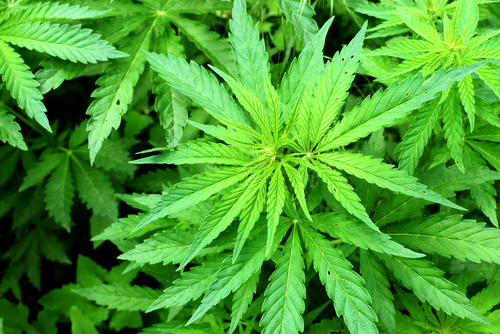Arrested for Marijuana Distribution? Here Are Possible Defenses
January 10, 2022

Drug crimes can lead to severe consequences in New Jersey. This is especially true when charged with drug distribution. Learning what potential consequences you’re dealing with, as well as your available defenses, is important as you navigate these charges.
What is Drug Distribution?
Drug distribution in New Jersey refers to an intent to sell drugs. In NJ Marijuana Distribution 2C:35-5, it means that the defendant is being charged with an intent to sell or distribute marijuana. The one factor that sets distribution charges apart from possession charges is that it often requires less evidence.
The prosecutor doesn’t need actual evidence of a transaction to charge someone with the distribution of marijuana. Distribution may not always include selling for profit. It may include any sale, transfer, exchange, import, or export of an illegal drug. New Jersey law prohibits the distribution of any illegal drug, including any controlled substances.
Potential Penalties of Drug Distribution in New Jersey
Charges for drug distribution in New Jersey vary, depending on the amount in possession. Being charged with drug distribution in New Jersey can lead to the following:
- Fourth-degree felony: A fourth-degree felony is an attempt to distribute less than one ounce of marijuana or illegal drug. A fourth-degree felony in New Jersey is punishable by 18 months in jail and fines up to $25,000.
- Third-degree felony: A third-degree felony is an attempt to distribute more than one ounce of marijuana or illegal drug. A third-degree felony in New Jersey is punishable by five years in jail and fines up to $25,000.
- Second-degree felony: A second-degree felony is an attempt to distribute more than five pounds of marijuana or illegal drug. A second-degree felony in New Jersey is punishable by 10 years in jail and fines up to $150,000.
- First-degree felony: A first-degree felony is an attempt to distribute 25 pounds or more of marijuana or illegal drug. A first-degree felony in New Jersey is punishable by 20 years in jail and fines up to $300,000.
As you can tell, New Jersey is strict with drug distribution charges. If you’re dealing with potential charges, you must consider your options soon.
Best Defense Against Drug Distribution Charges in New Jersey
The best defense against drug distribution charges will vary, depending on the details of your case. It’s important to talk with a lawyer who can review your charges and find the best defense based on that information. A few of the most common defenses include that you were unaware the drug was illicit, you weren’t ever in possession of the substance, or you were the victim of entrapment.
If you have a legal prescription for marijuana use, you may also be able to build a defense around that. Finding the best defense for your case can help you reduce your potential consequences. It may mean the difference between serving community service instead of jail time. If you’re dealing with potential drug charges, make sure you reach out to an experienced criminal defense lawyer soon to consider your options before it’s too late.
Contact an Experienced Cherry Hill Criminal Defense Lawyer About Your Drug Distribution Charges in New Jersey
Were you arrested or charged with drug distribution in New Jersey? The consequences of a conviction could be severe, leaving you with a permanent criminal record and possibly even sending you to jail. That is why you need to speak with a qualified criminal defense attorney as soon as possible about your case. The Law Offices of Michele Finizio has successfully represented clients charged with drug distribution in Mount Laurel, Willingboro, Cherry Hill, Camden, and throughout New Jersey. Call (609) 230-0374 or fill out the online contact form to schedule a consultation with a member of our legal team. We have an office conveniently located at 9 E. Main St, Moorestown, NJ 08057, as well as an office located in Cherry Hill, NJ.
The articles on this blog are for informative purposes only and are no substitute for legal advice or an attorney-client relationship. If you are seeking legal advice, please contact our law firm directly.
Disorderly conduct consists of any improper behavior such as fighting, threats of violence, or creating a dangerous atmosphere.
Reviews Matter
*Results may vary depending on your particular facts and legal circumstances.
★
★
★
★
★
★
★
★
★
★
★
★
★
★
★
★
★
★
★
★
